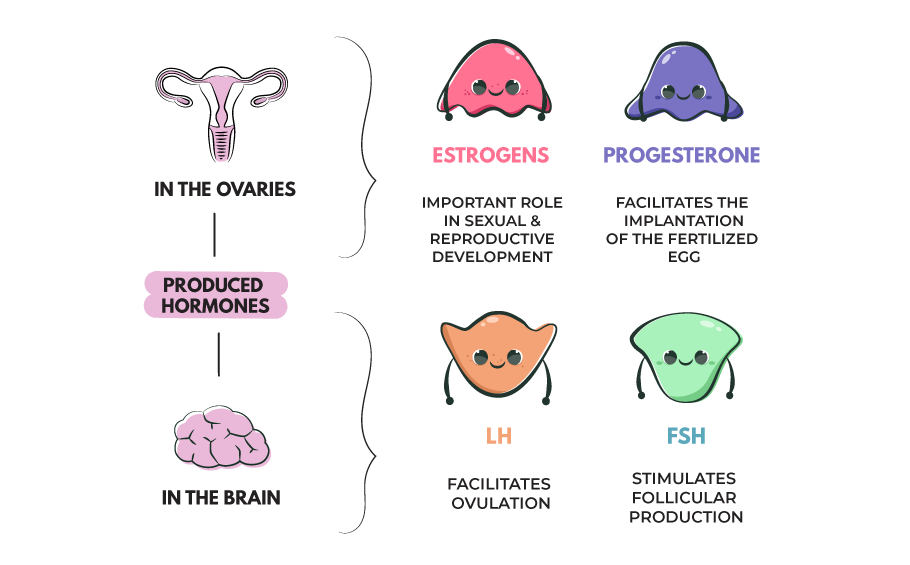

Credit: https://www.vegavero.com/female-hormones-their-functions
As women, our bodies undergo a myriad of changes throughout our lives, from puberty to pregnancy and beyond. One of the most significant phases we encounter is perimenopause and menopause, where hormonal imbalances can wreak havoc on our physical and emotional well-being. However, emerging research suggests that adopting certain lifestyle changes, including various fasting protocols, can help regulate hormones and promote overall health during this transitional period.
Perimenopause, the phase leading up to menopause, typically begins in a woman's 40s but can start earlier for some. During this time, hormone levels fluctuate unpredictably, leading to symptoms such as irregular periods, hot flashes, mood swings, and sleep disturbances. As perimenopause progresses into menopause, estrogen and progesterone levels decline significantly, marking the end of reproductive years and often bringing about additional symptoms like vaginal dryness, loss of bone density, and increased risk of heart disease.
Hormones play a crucial role in regulating various bodily functions, including metabolism, mood, and reproductive health. When hormone levels become imbalanced, it can disrupt these functions, leading to a host of symptoms associated with perimenopause and menopause. However, research suggests that fasting, particularly intermittent fasting (IF), can help regulate hormone levels and promote autophagy, the body's natural process of cellular renewal and repair.
Intermittent fasting involves cycling between periods of eating and fasting, with popular methods including the 16/8 method (fasting for 16 hours and eating within an 8-hour window) and the 5:2 method (eating normally for 5 days and restricting calories on 2 non-consecutive days). Studies have shown that IF can improve insulin sensitivity, increase human growth hormone (HGH) levels, and reduce inflammation, all of which can help regulate hormone production and balance.
In a study published in the journal "Cell Metabolism," researchers found that intermittent fasting can increase HGH levels by up to 5-fold, promoting fat loss and muscle preservation. Additionally, fasting has been shown to improve insulin sensitivity, which is essential for regulating blood sugar levels and preventing insulin resistance—a common issue during perimenopause and menopause (Heilbronn et al., 2005; Mattson & Wan, 2005).
In addition to intermittent fasting, longer fasting periods, such as 24-hour and 36-hour fasts, may offer additional benefits for hormonal regulation and autophagy. Dr. Mindy Pelz, a renowned chiropractor and fasting expert, often recommends these extended fasting protocols to her patients experiencing hormonal imbalances. During longer fasts, the body enters a deeper state of autophagy, clearing out damaged cells and promoting cellular rejuvenation—a process that becomes increasingly important as we age.
In a study published in the "Journal of Endocrinology," researchers found that extended fasting periods can stimulate HGH secretion and increase fatty acid oxidation, leading to improved metabolic health and hormone regulation (Rogozina et al., 2013).
Navigating hormonal imbalances during perimenopause and menopause can be challenging, but incorporating fasting and lifestyle changes can offer significant relief and support overall health. By adopting intermittent fasting protocols and incorporating longer fasts under the guidance of a healthcare professional, women can regulate hormone levels, promote autophagy, and thrive during this transformative phase of life.